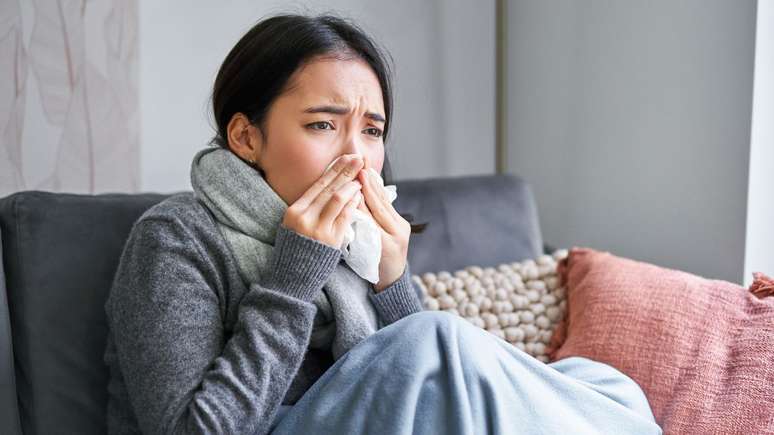The infectious disease specialist explains how to avoid respiratory problems such as flu and colds during the coldest season of the year
With the arrival of winter and the drop in temperatures, it is common to observe a significant increase in the incidence of respiratory diseases. This is due to the change in habits of people who, during the season, choose to spend more time in closed and less ventilated environments, which can contribute to the proliferation of pathogens and the worsening of pre-existing respiratory conditions.
According to data from the Brazilian Society of Pneumology and Physiology, around 20% of the Brazilian population suffers from respiratory diseases aggravated by the cold. Additionally, low temperatures can weaken the immune system, making us more vulnerable to infections. Therefore, it is essential to take measures to minimize risks and ensure health during this season.
“With the cold we are more susceptible to the spread of viruses and bacteria, so it is essential to strengthen some common practices that help avoid respiratory health problems,” comments Adventist Hospital infectious disease specialist Dr. Odeli Nicole Iasd. Below, the doctor has separated some important tips to avoid respiratory diseases in winter.
1. Keep rooms well ventilated
Make sure your home and workplace are always ventilated by opening windows regularly to allow fresh air to circulate. Avoid gatherings, especially in closed places, as the high concentration of people facilitates the spread of viruses, increasing the risk of contagion.
2. Stay warm and well hydrated
Protecting yourself from the cold with appropriate clothing is essential to avoid exposure to intense cold, which can weaken the immune system. Additionally, dry winter air can dehydrate the mucous membranes in the airways, making them more susceptible to infections. Therefore, drink plenty of water to stay hydrated.
3. Personal and environmental hygiene
Personal hygiene is one of the most effective forms of prevention. Wash your hands regularly with soap and water or use an alcohol-based hand sanitizer, especially after coughing, sneezing or being in public places. Additionally, regularly disinfect high-touch surfaces such as doorknobs, cell phones and countertops to reduce the risk of contamination.
4. Get vaccinated!
Vaccination is a powerful tool for preventing serious respiratory diseases. Get vaccinated against influenza and Covid-19, as recommended by health authorities, and keep up to date with other recommended vaccines, such as the pneumococcal vaccine, especially for the elderly and people with chronic diseases.
5. Maintain healthy habits
Adopting a healthy lifestyle strengthens the immune system. Follow a balanced diet rich in fruit and vegetables, exercise regularly and sleep well. Adequate sleep is essential for the body’s recovery and to keep the immune system strong.
6. Wear a mask when you have flu-like symptoms
If you experience flu-like symptoms such as fever, persistent cough, or difficulty breathing, wear a surgical mask to reduce the spread of the virus. If symptoms persist, consult a doctor immediately.
«Prevention is always the best medicine. Small daily habits, such as washing your hands and keeping hydrated, can significantly reduce the incidence of respiratory diseases”, reiterates the specialist.
Source: Terra
Ben Stock is a lifestyle journalist and author at Gossipify. He writes about topics such as health, wellness, travel, food and home decor. He provides practical advice and inspiration to improve well-being, keeps readers up to date with latest lifestyle news and trends, known for his engaging writing style, in-depth analysis and unique perspectives.









